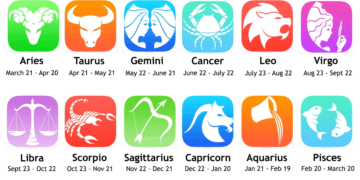Phil Donahue, whose pioneering daytime talk show launched an indelible television genre that brought success to Oprah Winfrey, Montel Williams, Ellen DeGeneres and many others, has died. He was 88.
NBC’s “Today” show, citing family members, said Donahue died Sunday after a long illness.
Dubbed “the king of daytime talk,” Donahue was the first to incorporate audience participation in a talk show, typically during a full hour with a single guest.
“Just one guest per show? No band?” he remembered being routinely asked in his 1979 memoir, “Donahue, My Own Story.”
The format set “The Phil Donahue Show” apart from other interview shows of the 1960s and made it a trendsetter in daytime television, where it was particularly popular with female audiences.
Later renamed “Donahue,” the program launched in Dayton, Ohio, in 1967. Donahue’s willingness to explore the hot-button social issues of the day emerged immediately, when he featured atheist Madalyn Murray O’Hair as his first guest. He would later air shows on feminism, homosexuality, consumer protection and civil rights, among hundreds of other topics.
The show was syndicated in 1970 and ran on national television for the next 26 years, racking up 20 Emmy Awards for the show and for Donahue as host, as well as a Peabody for Donahue in 1980. In May, President Joe Biden awarded a Presidential Medal of Freedom to Donahue, who was cited as a pioneer of the daytime talk show.
The show included radio-style call-ins, which Donahue greeted with his signature, “Is the caller there?” Donahue once told Ohio radio broadcaster Scott Spears that he would like the phrase as his epitaph.
The show’s last episode aired in 1996 in New York, where Donahue was living with his wife, actor Marlo Thomas. He met Thomas, the “That Girl” star of the 1960s who was a household name at the time and would later become a regular on “Friends,” when she appeared on his show in 1977.
He later said it was love at first sight, and they did a poor job of hiding it on the air.
“You are really fascinating,” Donahue told Thomas, grasping her hand. “You are wonderful,” Thomas said back. “You are loving and generous, and you like women and it’s a pleasure, and whoever the woman in your life is, is very lucky.”
The two had been married since 1980. Donahue had five children, four sons and a daughter, from a previous marriage.
Donahue returned briefly to television in 2002, hosting another “Donahue” show on MSNBC. The network canceled it after six months, citing ratings — although internal memos would later reveal that it was about politics.
He was born Phillip John Donahue on Dec. 21, 1935, part of a middle-class Irish Catholic family in Cleveland.
Donahue was in the first graduating class of St. Edward High School, a Catholic all-boys preparatory school in the Cleveland suburb of Lakewood, in 1953. He graduated from the University of Notre Dame with a degree in business administration in 1957. He later rebelled against, and left, the church, though he poignantly recalled in his book that “a little piece” of his faith would always be with him.
After a series of early jobs in radio and TV, Donahue was invited to move an earlier radio talk show to Dayton’s WLWD television station in 1967. It moved in 1974 to Chicago, where it stayed for years, then ended its run in New York.
The show featured discussions with spiritual leaders, doctors, homemakers, activists and entertainers or politicians who might be passing through town. A frequent guest was his Centerville, Ohio, neighbor Erma Bombeck, the humorist and syndicated columnist.
Donahue said striking upon the show’s winning formula was a happy accident.
“It may have been a full three years before any of us began to understand that our program was something special,” Donahue wrote. “The show’s style had developed not by genius but by necessity. The familiar talk-show heads were not available to us in Dayton, Ohio. … The result was improvisation.”
That lent a freedom to the show that persisted as it grew to No. 1 status in its class.








 United Arab Emirates Dirham Exchange Rate
United Arab Emirates Dirham Exchange Rate

